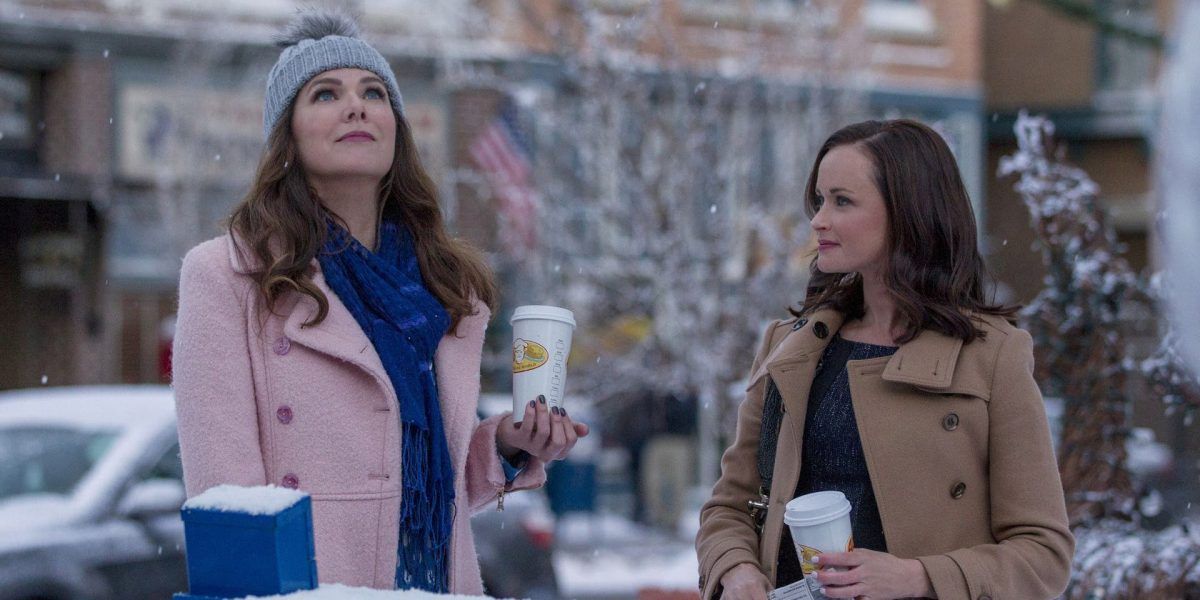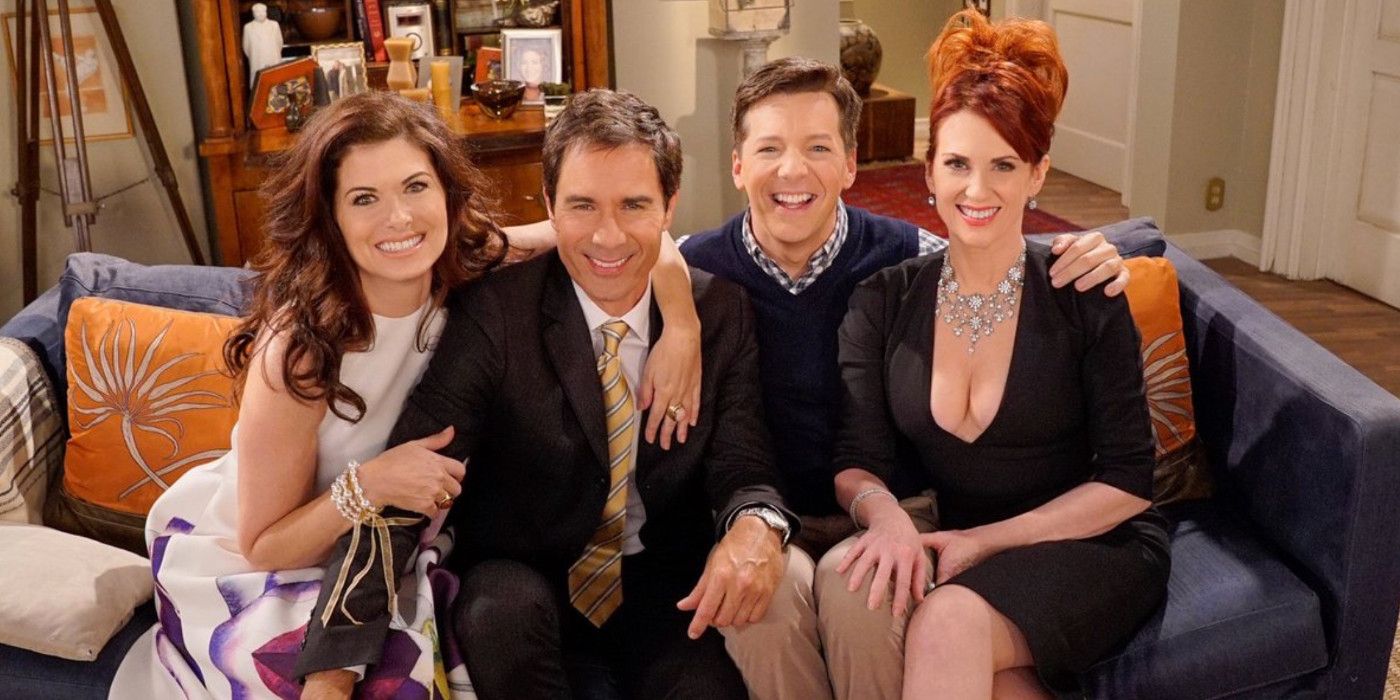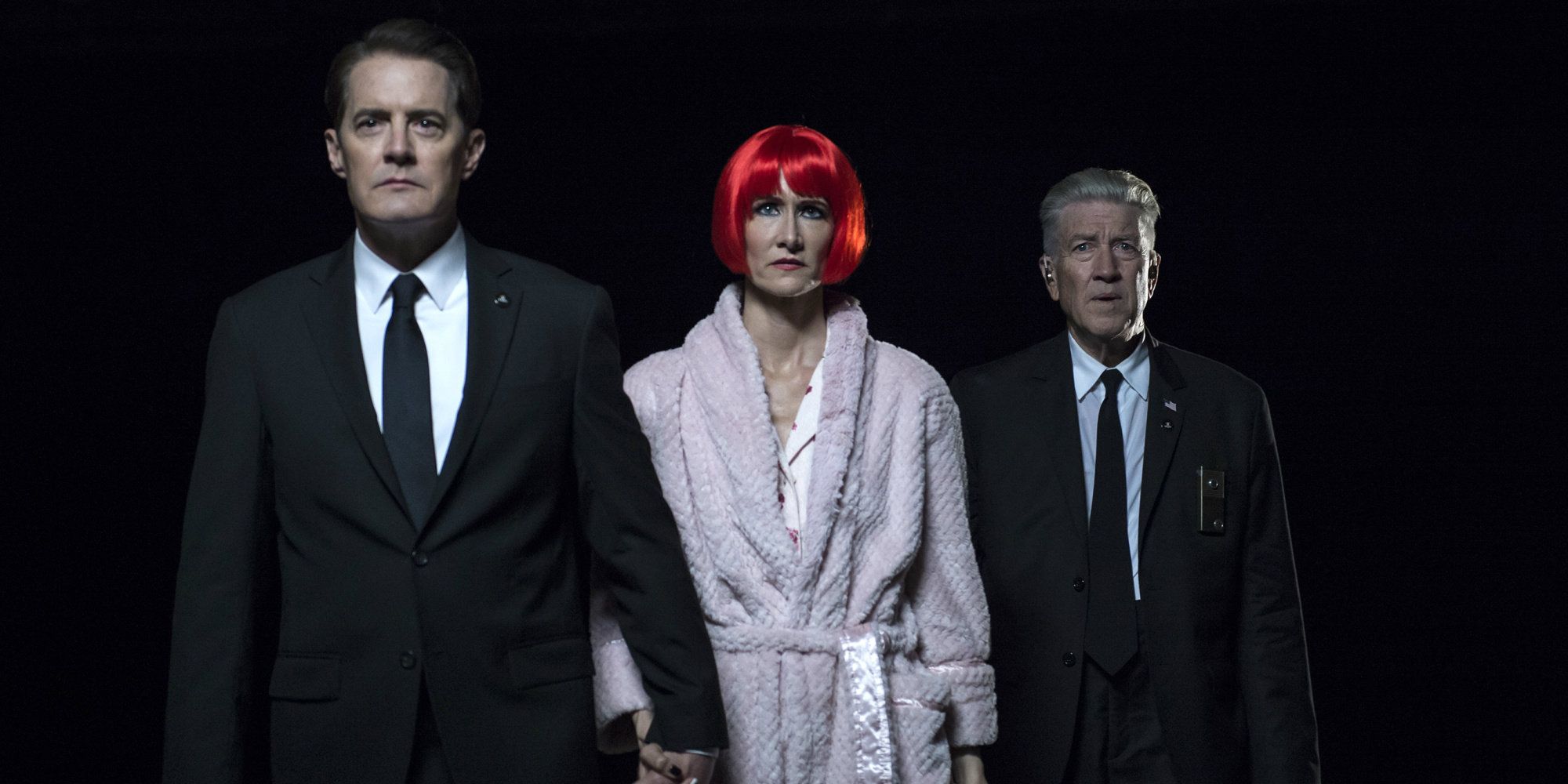Following the recent announcement that NBC is contemplating a revival of their once mighty sitcom The Office - but without any of the show's main cast returning - there was the inescapable feeling that we've reached the saturation point for this particular television trend. This wave of revivals has not only proved to be creatively empty (with a few notable exceptions), it's also given networks a free pass to eschew the pursuit of new, exciting shows in favor of easy nostalgia. It's not just comfort food television, it's junk food television that is well past its expiration date. We deserve healthier viewing choices.The current wave of TV revivals can be traced back to Netflix's resurrection of Arrested Development in 2013. A ratings-challenged, creatively-audacious sitcom in its original Fox run, the show ended in unceremonious fashion after its third season. True to the show's subversive spirit, the inaugural Netflix revival season took advantage of the streaming service's binge-watching model with a bewildering structure, as the characters were largely featured in standalone spotlight episodes that would overlap with the edges of other episodes, sometimes even reinterpreting the same event through different characters' perspectives. It was Rashomon with sex jokes, and it sharply divided a fanbase that was expecting more of the same from a show that always zigged when it was expected to zag, an irony sadly lost on many of those fans.Related: The Office Revival in Early Development For Late 2018 PremiereThe wrong lessons were learned from Arrested Development's success; revivals that followed shied away from reinventions and subversions of expectations in favor of safe, comfortable continuations. This hasn't always resulted in disaster - the Gilmore Girls revival was a largely pleasant afterword that provided closure to a much beloved series that was denied its proper ending due to behind the scenes turmoil during the end of its initial run. 24: Live Another Day proved there was still gas left in the tank for the story of counterintelligence death bringer Jack Bauer, and was also a sly Obama era commentary on the original run's controversial Bush-era approach to issues like torture and Islamophobia (let's just try to forget about 24: Legacy). But those have been the exceptions to the rule, and even those modest successes didn't really add much to their show's legacies. Much more common has been the outright embarrassing retread. Heroes was well and truly out of coherent ideas by the end of its four-season run; it really shouldn't have been surprising that Heroes: Reborn fell flat on its super-powered face. The X-Files was such a genre-defining show that people are always going to have a hard time letting it go... but at this point it's only harming its legacy. After the series itself whimpered to the finish line of its ninth season and a second movie was essentially ignored at the box office, Fox brought the series back for a tenth season in 2016. It was a ratings success, but it was creatively bankrupt, with only "Mulder and Scully Meet the Were-Monster" resembling the show that so bewitched sci-fi and horror fans. It's difficult to feel anything other than apathy regarding the upcoming eleventh season.Perhaps the most insidious strain of the revival trend is most succinctly embodied by two beloved sitcoms. Full House was never exactly high art, but it was a fun, good hearted series that families could enjoy together on Friday nights in the late 80s and early 90s. Fuller House, the modern Netflix continuation starring the original series' kids as young parents - an inversion of the original show's premise - is a mawkish, smug exercise in empty nostalgia, bereft of any clear reason to exist other than to remind people Full House was once a show that people liked.Perhaps most disappointing of all has been Will & Grace. When it debuted in 1998, it was not only a massive hit for NBC, it was culturally significant, helping to normalize the LGBT community for large swathes of America that were still openly hostile toward gay men in particular. The show died a natural death after eight seasons with a fairly sterling legacy, perhaps trailing only Friends and Seinfeld as the premiere sitcom of its era. Following a well received short recorded to urge Americans to vote in the 2016 election, NBC decided to revive the show for a ninth season. It was a ratings smash, and NBC has already ordered a tenth season. But there was a reason the show ended after eight years, even though its ratings were still strong - it was narratively exhausted. The revival has proved that in spades, ignoring the events of the original run's series finale to tell very familiar stories and reducing its characters to broad cartoon sketches.
But those have been the exceptions to the rule, and even those modest successes didn't really add much to their show's legacies. Much more common has been the outright embarrassing retread. Heroes was well and truly out of coherent ideas by the end of its four-season run; it really shouldn't have been surprising that Heroes: Reborn fell flat on its super-powered face. The X-Files was such a genre-defining show that people are always going to have a hard time letting it go... but at this point it's only harming its legacy. After the series itself whimpered to the finish line of its ninth season and a second movie was essentially ignored at the box office, Fox brought the series back for a tenth season in 2016. It was a ratings success, but it was creatively bankrupt, with only "Mulder and Scully Meet the Were-Monster" resembling the show that so bewitched sci-fi and horror fans. It's difficult to feel anything other than apathy regarding the upcoming eleventh season.Perhaps the most insidious strain of the revival trend is most succinctly embodied by two beloved sitcoms. Full House was never exactly high art, but it was a fun, good hearted series that families could enjoy together on Friday nights in the late 80s and early 90s. Fuller House, the modern Netflix continuation starring the original series' kids as young parents - an inversion of the original show's premise - is a mawkish, smug exercise in empty nostalgia, bereft of any clear reason to exist other than to remind people Full House was once a show that people liked.Perhaps most disappointing of all has been Will & Grace. When it debuted in 1998, it was not only a massive hit for NBC, it was culturally significant, helping to normalize the LGBT community for large swathes of America that were still openly hostile toward gay men in particular. The show died a natural death after eight seasons with a fairly sterling legacy, perhaps trailing only Friends and Seinfeld as the premiere sitcom of its era. Following a well received short recorded to urge Americans to vote in the 2016 election, NBC decided to revive the show for a ninth season. It was a ratings smash, and NBC has already ordered a tenth season. But there was a reason the show ended after eight years, even though its ratings were still strong - it was narratively exhausted. The revival has proved that in spades, ignoring the events of the original run's series finale to tell very familiar stories and reducing its characters to broad cartoon sketches. Disturbingly, networks have seen Will & Grace as something of a template. Roseanne - a show that not only ended well past its expiration date, but featured titanium fortified closure in its maddening series finale - is improbably returning to ABC in 2018. NBC is reportedly in talks to bring back 90s sitcom Mad About You as well, and the network's top executives have publicly expressed their desire to bring back classic series like The West Wing, 30 Rock, and ER as well. With the possible exception of The West Wing, every one of those shows was creatively spent by the time they ended their original runs. There's no compelling reason to bring them back than to play on the easy nostalgia of a generation of viewers who have burned through their classic TV Netflix queues.It's not even a strategy that makes a lot of sense. The most-watched network shows of 2017 - NCIS, The Big Bang Theory, This Is Us - are original series. And a quick scan of the cable landscape - home of more creatively audacious work and awards season darlings - shows that revivals are simply the wrong shortcut to success: adaptations are the big winners right now. Game of Thrones and The Walking Dead dominate both TV ratings and the cultural conversation at large, and both are adaptations. The 2017 Emmy nominations were dominated by The Handmaid's Tale and Westworld, a novel and film adaptation, respectively. If the modern television industry really is as bereft of ideas as they seem to be, the proven road to success is borrowing ideas from other media, not recycling their own.Related: Gilmore Girls: A Year in the Life Premiere ReviewBut even adaptations are a short-term fix. It really wasn't so long ago that revivals were dismissed as the silly notion of fanboys, that network TV was dominated by its original scripted programming. But the eroding, increasingly fractured state of the television audience as a whole has the once unbeatable networks scrambling. A creative risk that misfires is no longer just a disappointment; it's yet another brick in the mausoleum slowly constructing itself around old media as streaming services like Netflix and Amazon Prime smell blood in the water. These are desperate times, and revisiting old favorites feels about as close to a sure thing as there is in an era where no such thing really exists anymore. But if the old guard of networks are going to survive, they have to see This Is Us as the way forward instead of Will & Grace.
Disturbingly, networks have seen Will & Grace as something of a template. Roseanne - a show that not only ended well past its expiration date, but featured titanium fortified closure in its maddening series finale - is improbably returning to ABC in 2018. NBC is reportedly in talks to bring back 90s sitcom Mad About You as well, and the network's top executives have publicly expressed their desire to bring back classic series like The West Wing, 30 Rock, and ER as well. With the possible exception of The West Wing, every one of those shows was creatively spent by the time they ended their original runs. There's no compelling reason to bring them back than to play on the easy nostalgia of a generation of viewers who have burned through their classic TV Netflix queues.It's not even a strategy that makes a lot of sense. The most-watched network shows of 2017 - NCIS, The Big Bang Theory, This Is Us - are original series. And a quick scan of the cable landscape - home of more creatively audacious work and awards season darlings - shows that revivals are simply the wrong shortcut to success: adaptations are the big winners right now. Game of Thrones and The Walking Dead dominate both TV ratings and the cultural conversation at large, and both are adaptations. The 2017 Emmy nominations were dominated by The Handmaid's Tale and Westworld, a novel and film adaptation, respectively. If the modern television industry really is as bereft of ideas as they seem to be, the proven road to success is borrowing ideas from other media, not recycling their own.Related: Gilmore Girls: A Year in the Life Premiere ReviewBut even adaptations are a short-term fix. It really wasn't so long ago that revivals were dismissed as the silly notion of fanboys, that network TV was dominated by its original scripted programming. But the eroding, increasingly fractured state of the television audience as a whole has the once unbeatable networks scrambling. A creative risk that misfires is no longer just a disappointment; it's yet another brick in the mausoleum slowly constructing itself around old media as streaming services like Netflix and Amazon Prime smell blood in the water. These are desperate times, and revisiting old favorites feels about as close to a sure thing as there is in an era where no such thing really exists anymore. But if the old guard of networks are going to survive, they have to see This Is Us as the way forward instead of Will & Grace. A final note on revivals. 2017 gave us what is arguably the greatest television resurrection of all time in Twin Peaks: The Return. Visionary filmmaker David Lynch was given unprecedented freedom to do whatever he wanted with the 18 episode revival of his most beloved work, and rather than revisit the small town charm and teen drama of the original, he wildly reinvented the world of Special Agent Dale Cooper, suggesting that the elemental evil that once resided on the edges of the quaint Washington logging community in 1990 had fully penetrated not only Twin Peaks, but the rest of the world by 2017. It was a bold, disturbing, surprisingly hilarious piece of revolutionary art that should not only stand as one of television's all time great achievements, but show that there is still plenty of new ground for television to explore as a medium.And yet it should be telling that Lynch took his revival to Showtime instead of ABC, where the show had its original run. The same big business hand-wringing and executive meddling that resulted in Twin Peaks' untimely end in the 90s is still present today, and is in some ways amplified, since the stakes for the networks are so much higher now. But even if ABC is never going to be a suitable home for an auteur like Lynch, there has to be a middle ground between Twin Peaks and Roseanne. If the networks are going to survive in any relevant way, they have to leave the likes of The Office and Will & Grace in the past and embrace the uncertainty of new creative frontiers.More: Screen Rant's Top 5 Favorite TV Shows of 2017
A final note on revivals. 2017 gave us what is arguably the greatest television resurrection of all time in Twin Peaks: The Return. Visionary filmmaker David Lynch was given unprecedented freedom to do whatever he wanted with the 18 episode revival of his most beloved work, and rather than revisit the small town charm and teen drama of the original, he wildly reinvented the world of Special Agent Dale Cooper, suggesting that the elemental evil that once resided on the edges of the quaint Washington logging community in 1990 had fully penetrated not only Twin Peaks, but the rest of the world by 2017. It was a bold, disturbing, surprisingly hilarious piece of revolutionary art that should not only stand as one of television's all time great achievements, but show that there is still plenty of new ground for television to explore as a medium.And yet it should be telling that Lynch took his revival to Showtime instead of ABC, where the show had its original run. The same big business hand-wringing and executive meddling that resulted in Twin Peaks' untimely end in the 90s is still present today, and is in some ways amplified, since the stakes for the networks are so much higher now. But even if ABC is never going to be a suitable home for an auteur like Lynch, there has to be a middle ground between Twin Peaks and Roseanne. If the networks are going to survive in any relevant way, they have to leave the likes of The Office and Will & Grace in the past and embrace the uncertainty of new creative frontiers.More: Screen Rant's Top 5 Favorite TV Shows of 2017

